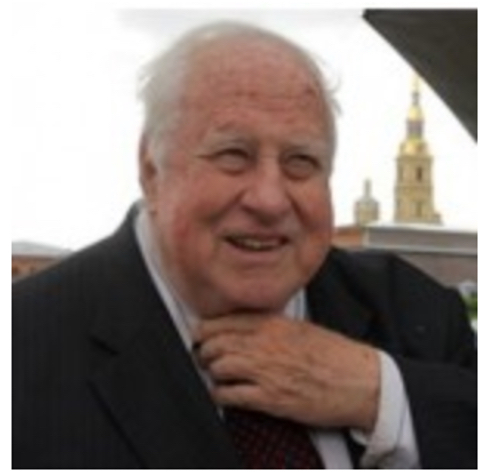
Arcadi Nebolsine of Sagaponack died August 21 in Westhampton, after a long illness. He was 87.
A child of Russian refugees, Mr. Nebolsine was a true Renaissance man, described by friends as “intellectual, charming, infuriating and such, such fun.”
A prominent teacher and activist, Professor Nebolsine fought tenaciously to preserve architectural monuments and the environment the world over, his family said. This included the East End, whose beauty, he thought, “resided in its simplicity, its horizontal lines.” Campaigning from his family’s old Sagaponack house, which he visited every year since 1941, he worked with local allies to stop overdevelopment.
He relished battling formidable foes, his family said. Appalled by human rights abuse in the Soviet Union and seeing 13th century churches turned into garages, he assisted dissidents, and in return was blacklisted by the Kremlin. He wasn’t afraid to harangue the mayors of Jerusalem, Moscow, Venice and other cities to preserve their cultural heritage. He enlisted prominent friends in these battles, including the artists Isamu Noguchi and Mark Rothko, writers Kurt Vonnegut, Tom Wolfe and Dimitri Likhachev, and poets W. H. Auden and Ezra Pound, often plotting with them over cocktails. Educated at Harvard and Oxford, he taught at New York University, Yale, Columbia and Drew Universities.
Mr. Nebolsine saved over 26 destroyed rural churches in Russia and engaged thousands in his campaigns. In one of his signature achievements, he successfully battled to save the center of St. Petersburg by helping defeat plans to build one of the world’s tallest skyscrapers in the heart of the old city. For this, he received commendations from the country that had once banished him.
His PhD thesis at Columbia University was on a subject he considered relevant today: it was titled “Poshlost,” an untranslatable Russian word popularized by his mentor, the writer Vladimir Nabokov. It means “the vulgarity of self-satisfied mediocrity.”
Professor Nebolsine is the author of the book “Metaphysics of the Beautiful,” 2003, which celebrates cultural ecology.
He had many acolytes and admirers in various countries. They ranged from gangsters to bishops, and he shared his philosophy with them all. He found childlike joy in small delights whether it was a Bach fugue, a line from Dante, a Bridgehampton sunset, or a good egg salad.
An accomplished pianist, he played for Igor Stravinsky as a teenager and for decades entertained listeners far into the night. He could play any section of the orchestra from any opera on his old piano.
Mr. Nebolsine was a devoted member of the Russian Orthodox Church.
He believed beauty will save the world, his family said, noting that he continued to defend beauty until the end.
Mr. Nebolsine is survived by five nieces and nephews, and nine great-nieces and great-nephews, whom he lovingly referred to as “horrible.”
A memorial service will be planned in the fall.